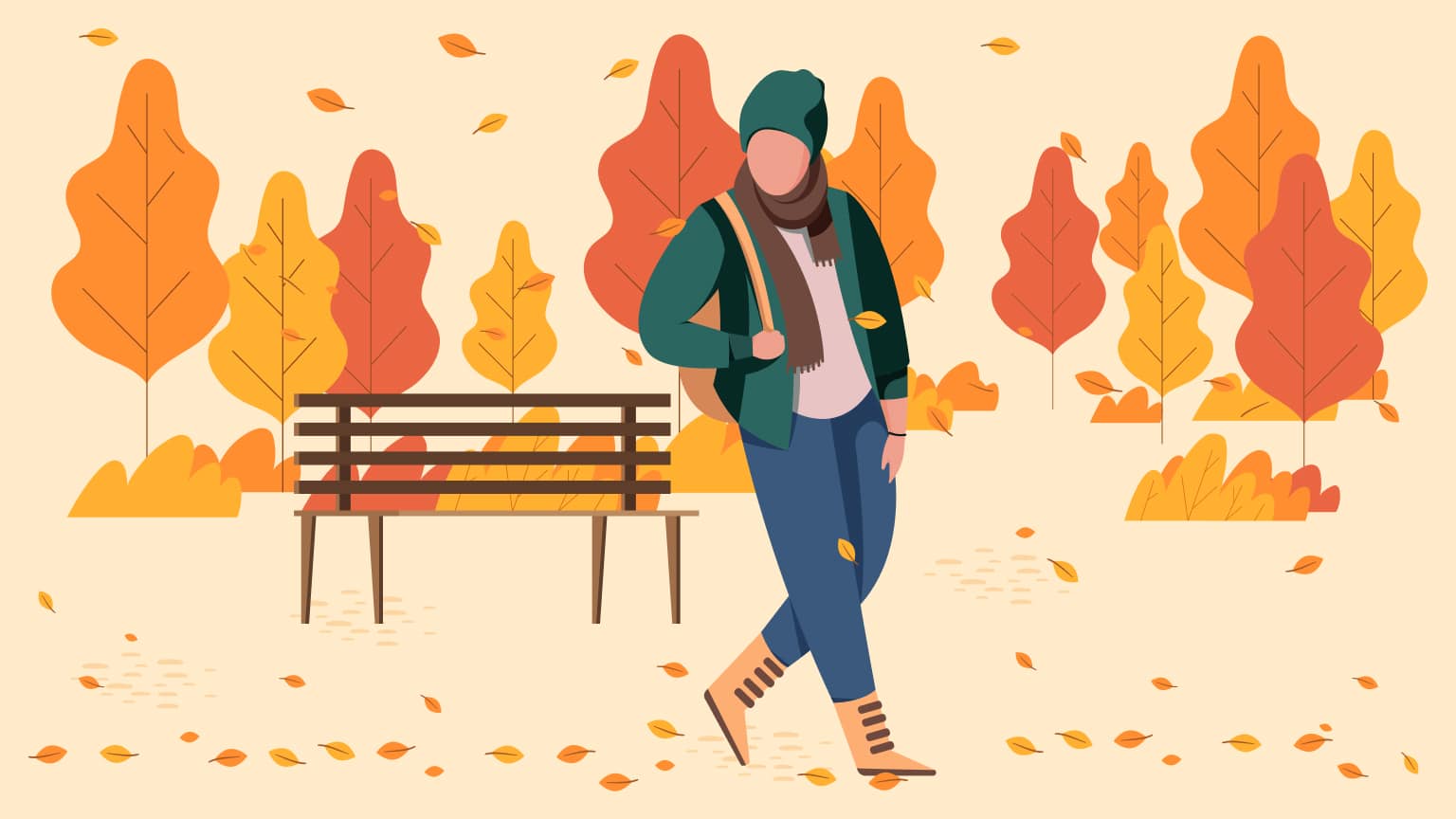Although this ‘transition’ season is filled with beauty and inspiration, it is not all pumpkin spice lattes and cosy sweaters (although they help!). Many of us may struggle with moodiness and worry, often downplaying the importance of self-care. If you find yourself dealing with the autumn blues, here are some tips you might try to keep your spirit up through this season.
Autumn Anxiety
Whether we realise it or not, seasons significantly affect most of us. Each time of the year has its highs and lows, but some months can be more challenging than others. If you have been feeling more stressed, demotivated and generally in a low mood lately, you might be experiencing what psychologists call ‘autumn anxiety’.
This phenomenon is more common than you might think and is triggered by the transition to the fall season. Symptoms can vary from person to person, but typically include sad or anxious feelings, poor focus, irritability, sleepiness or fatigue and loss of interest in everyday activities.
Why do we feel this way?
Scientists have not yet a full answer to the question of what exactly causes this feeling, but it’s likely to be a complex multitude of factors. An important step in dealing with autumn anxiety is identifying your unique triggers and tackling the roots of your negative emotions before they start to feel overwhelming.
Environmental changes
At its simplest, with autumn comes colder temperatures and less sunlight. We all know about the positive impact of sunshine exposure on mental health, and, therefore, the lack of it can play a significant role in our mood and well-being. Growing evidence also suggests that seasonal changes in light can trigger chemical changes in the brain, which seems to be rather sensitive to the light-dark cycle.
‘People may struggle due to a shift in their internal biological clock”, explains psychologist Paul Hessel. “The lack of daylight affects the body’s production of melatonin, a hormone that helps control the body’s internal clock and the sleep cycle, as well as the levels of serotonin, the neurotransmitter associated with depression and mood regulation.”
Lifestyle changes
Lifestyle factors may also represent a typical trigger for autumn anxiety. When our fall schedule changes into a busier one we tend to take on more projects and responsibilities. At the same time, feeling constantly tired makes it harder to take proper care of ourselves. This creates a vicious circle. We might want to go out less, work out less and be more prone to cancel any plans. To be honest, it is not as easy to jump on a bike or walk the dog during cold rainy days, right? Although it might seem more convenient in the short term, this actually leads to worsened mental well-being and even lower energy levels.
Turn over a new leaf
While the causes of autumn blues are among the most diverse, luckily there are many simple and effective methods to fight it. Bringing some seasonal self-care activities into your routine, for example, will give you a chance to explore different interests, feelings, and energies. Tuning into your current state will help you determine what kind of self-care you really need. How do you feel right now? In what ways did your mental and physical needs change with the new season? What activities would help you feel better?
If you’re unsure where to get started, here are some self-care to help you feel better during this mellow season, especially on extra gloomy days:
1. Plan your routine
Having a routine can be beneficial at any time, especially if you are trying to establish healthy habits. During the autumn months, sticking to a schedule will make you feel more organized and productive. A good place to start is to focus on the things under your control: set wake-up and sleep times, make time for healthy meals and organise your activities.
“A regular daily schedule is good for everyone, but especially if you are prone to seasonal mood changes,” says Paul. “Get up on time every morning and take time for a tasty and nutritious breakfast. Schedule enough relaxation between your obligations, and suppress the tendency to lie in bed during the day or take too many naps.”
2. Spend more time in nature
Taking a walk outside can help wake your immune system up, reduce your stress levels and help with mental health problems such as anxiety and depression. Even cooler? Spending time in nature has been found to sharpen our cognitive abilities. So, explore outdoors, step away from your phone and enjoy the nature around you. You’d be surprised at the wonders waiting outside your door.
3. Try something new
Remember that hobby, idea, or experience that you have been wanting to start for a long time and always postponed? This is a good time to pick it up again! Seize the moment and try something new in your life to step out of your old routine. Breaking into your learning zone will help you feel empowered and more self-conscious, replenishing your energy levels even on the greyest days.
4. Get professional help
It’s okay to be bummed out for no reason sometimes. Often, fighting against “negative feelings”, and not wanting to feel sad at all costs, only leads to more mental distress. If, however, this time of year consistently makes you blue and you notice that the struggle becomes significant in your daily life, don’t hesitate to get in touch with a psychologist. Talking through your feelings with a professional might help you untangle the personal roots of your autumn anxiety.
✨ You might like to read: Why Therapy Is Always a Good Idea, Even When You’re Happy
5. Make time for what you love
Taking care of yourself is, also and above all, doing what makes you happy – whether it’s watching your favourite movie marathon, curling up on the sofa with a nice book, or playing board games with friends when it is raining outside. Allow yourself to feel your feelings without guilt or judgment, accept your mood swings as an amazing, complicated human being and be extra kind to yourself.
“Try to be accepting of your mood changes,” explains Paul. “It is important not to compare yourself too much to others. People differ in how their mind and body respond to seasonal changes – you might be a bit more vulnerable and that is totally okay.”
Raise your spirit
If you thought you were the only one finding autumn months a bit bittersweet, know you’re far from alone. Having down days is common and there is nothing wrong or weird about it. Our suggestion is to take this moment as a natural time for restoring your balance and nurturing your energy.
Autumn is a season of transition. The world is going through a lot of changes and with it, so are you. Take a deep breath and embrace your warmest colours.





